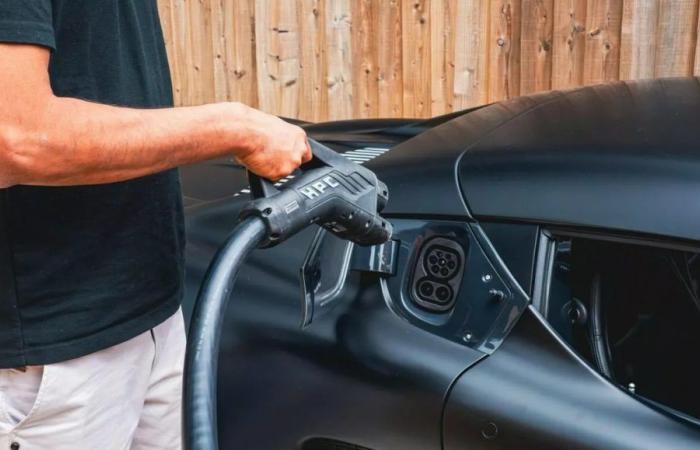The British startup achieved a battery charge from 10 to 80% in less than 5 minutes.
© Nyobolt
Installed on a unique sports car prototype based on the Lotus Elise, the battery from the British company Nyobolt was charged from 10 to 80% in four minutes and 37 seconds, precisely. That doesn’t even leave time to take a technical break or go buy a coffee.
Advertising, your content continues below
To do this, the new battery was plugged into a 350 kW DC fast charger, and the bulk of the charging, the first four minutes, took place at a constant current of 500 A.
A nuance of size
Nyobolt’s battery uses next-generation patented carbon and metal oxide anode materials along with a low impedance cell and integrated power electronics. This low impedance generates less heat, making it easier to handle high charging power.
The company claims to have addressed battery degradation issues, stating that their cells have already undergone more than 4,000 full DoD (depth of discharge) fast charge cycles, while retaining 80% of the battery’s original capacity. This equates to almost a million kilometers that would have been covered with their Nyobolt EV concept.
The company says the battery is the result of a decade of research by Cambridge University scientists Professor Clare Gray and Sai Shivareddy. The duo invented cutting-edge supercapacitors.
The small electric car based on a Lotus is capable of only 250 km of autonomy, but has a very low weight.
© Nyobolt
Advertising, your content continues below
While the recharge time is remarkable, the average charge power is even more so, and that is ultimately the most important thing. Showing a nice peak power without being able to hold it for more than a few seconds is of little interest.
But here, the battery is relatively small compared to that of modern EVs, since it is only 35 kWh and only allows 250 km of WLTP autonomy, on a full charge. However, smaller batteries that charge very quickly could be a solution, as this would reduce the weight of EVs and therefore their consumption, while reducing their ecological impact during production with a lower need for raw materials.
In use, the tires, which suffer with electric, would wear out less quickly, while the cars would be more maneuverable.
Although some manufacturers claim fast charge times in the 15 minute range, closer inspection reveals that charging typically occurs over a limited SOC region specifically chosen to preserve cell life, e.g. between 20 and 80%. Typically, the charging profile only maintains these maximum charging levels for a short period of the charging time. Nyobolt’s low impedance cells ensure durability, extending the useful life of the battery up to one million kilometers in the case of our technology demonstrator.
Interested builders
Developed in collaboration with Ian Callum’s engineering company Callum, the battery has been designed for low-volume production. This means the packs could be used in road cars, but production will only increase to 1,000 packs in 2025.
At least eight manufacturers have expressed interest in the technology.
© Nyobolt
Some manufacturers have already shown interest in the technology, and Nyobolt is said to be in talks with no less than eight producers wishing to use this high-potential technology.
It remains to be seen who will have access to it, and whether it will permanently revolutionize electric mobility, while many players are working on the solid-state battery, which is also supposed to be a game-changer.
Advertisement, your content continues below






